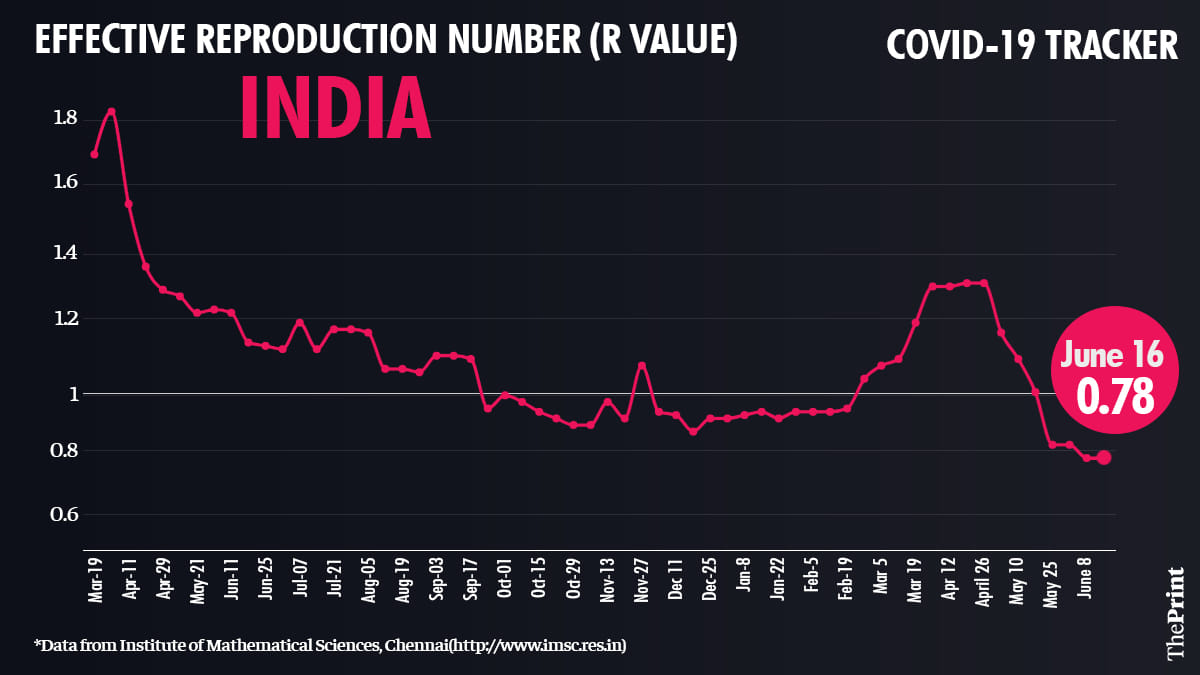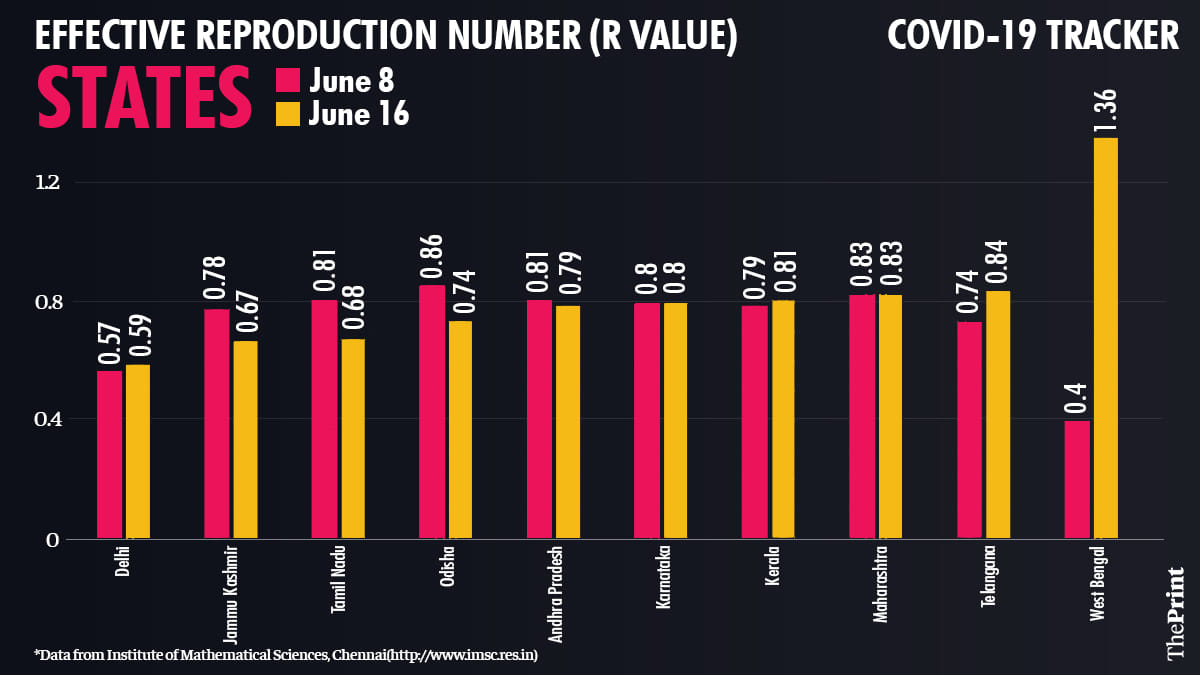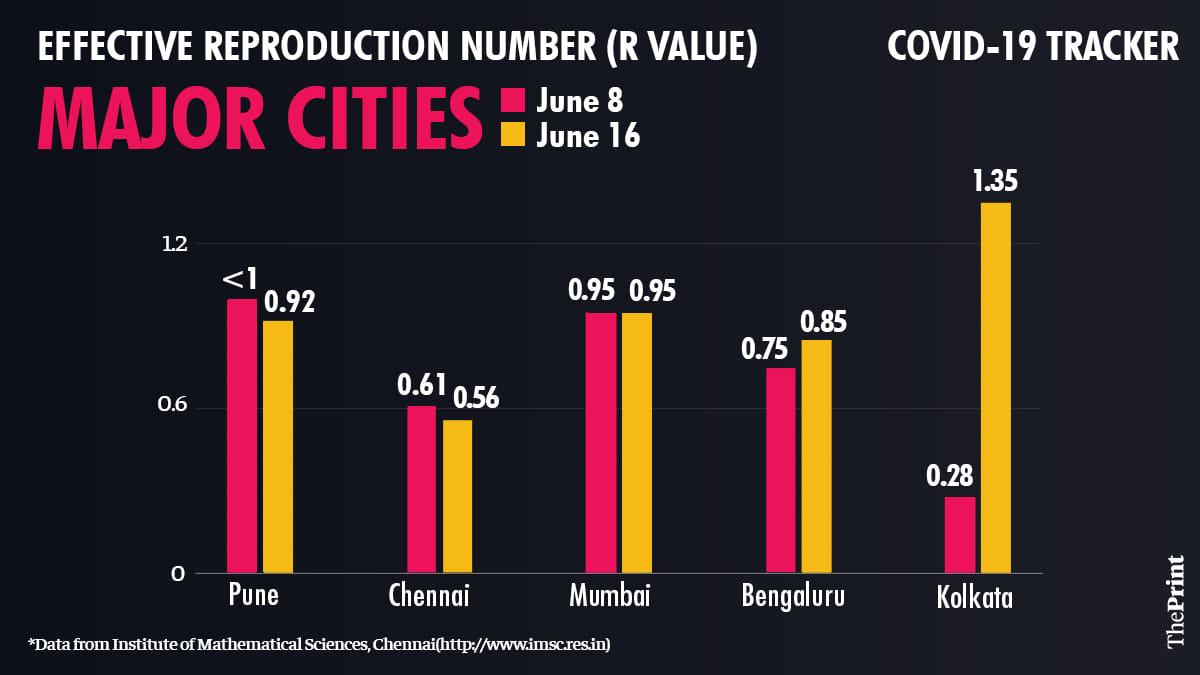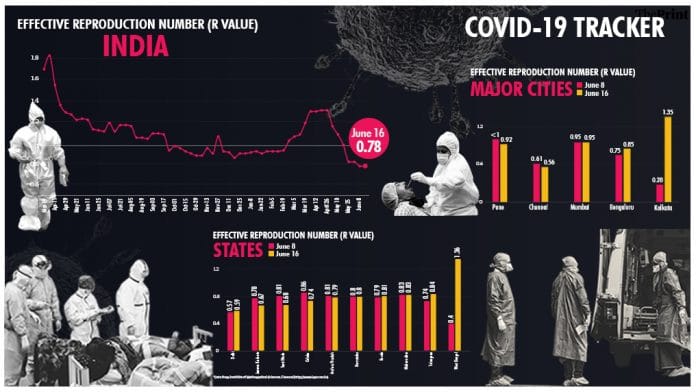New Delhi: Even as India’s effective reproduction number (R) for Covid — an indicator of how fast the infection is spreading — hit a record low of 0.78, West Bengal witnessed a sharp increase in its R, with the value rising to 1.36.
The R value describes the average number of people who can get infected from one Covid patient. R needs to stay below 1 for the pandemic to come to an end.
Over the last two weeks, the R for India has dropped to 0.78 — the lowest since the beginning of the pandemic.

However, the value may rise again if pandemic-related restrictions are lifted.
According to Sitabhra Sinha, a researcher at the Institute of Mathematical Sciences in Chennai, who has been tracking R values across Indian states since the beginning of the pandemic, West Bengal’s R is the highest among states with the highest number of active cases.
As of Tuesday, West Bengal recorded 20,046 active cases of Covid-19. All other states with the highest burden of active cases have R below 1.
R for states

States like Telangana and Kerala saw also a rise in their R values, although it continues to be below 1.
For Telangana, the value rose from 0.74 to 0.84. For Kerala, the rise was much smaller — from 0.79 to 0.81.
For the last three weeks, Delhi too has been experiencing a small but steady rise in R.
Around May 25, Delhi’s R was at 0.43. This increased to 0.55 around June 1 and further rose to 0.57 last week. This week, the value is at 0.59.
For Maharashtra, R has remained steady for the last two weeks at 0.83. Similarly, Karnataka has maintained R at 0.80 for the last several weeks.
Major cities

The sharp increase in West Bengal’s R is likely driven by a similar increase in R for Kolkata, which rose to 1.35 this week from 0.28 last week.
For Bengaluru, R has been steadily rising from 0.71 around May 25 to 0.75 last week. This week it has further increased to 0.85.
Mumbai and Pune have R values at 0.95 and 0.92 respectively.
Meanwhile, Chennai’s R dropped to 0.56 this week from 0.61 last week.
Also read: Covid immunity lasts for a year, vaccine boost helps fight variants, study says






